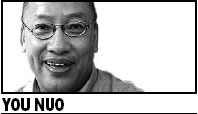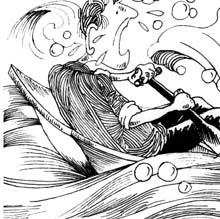I am glad that China's political reform was brought up again by Premier Wen Jiabao last Friday in his press conference at the end of the National People's Congress (NPC) annual session. It was interesting to notice the way he talked about reform, in response to a reporter's question about corruption. This is a problem that caused the fall of quite a few high-ranking officials in the past year and remains one of the major issues of public concern.  There were two elements worth noticing in the premier's remarks. First, he revisited the theme Deng Xiaoping raised in the 1980s, namely the over-concentration of power as the key cause of corruption. Second, the premier revisited a traditional moral teaching about politics. There were two elements worth noticing in the premier's remarks. First, he revisited the theme Deng Xiaoping raised in the 1980s, namely the over-concentration of power as the key cause of corruption. Second, the premier revisited a traditional moral teaching about politics.
China was not ready to do much to reduce the concentration of power in the government administration when Deng first pointed out the problem more than two decades ago. There was really nothing to substitute for the various official institutions managing society - not the market, not law, not citizens' autonomous associations. Sometimes, as frequently lamented by the press at that time, a factory would have to have dozens of official seals on its request for approval before making even a minor change in internal finance. Now, the market economy has substantially reduced the number of government agencies. Many of the remaining agencies have changed from total regulators of industry to regulators whose realm of power is legislatively defined. China is now much better prepared for further limiting the power that individual bureaucrats can wield over citizens' pursuits of their own goals. Doing so, as the premier pledged, is an important step to strengthen the rule of law and root out the fundamental cause of corruption. Meanwhile, it is important to set higher moral standards for officials that the public can easily understand. Hence the premier's referral to the ancient teaching that the common people's power is like water, able to both carry and sink a boat - meaning any official or any government. That is an idea handed down from 2,000 years ago. The saying is believed to have come from Confucius (551-479 BC), quoted in the Eastern Han Dynasty (AD 25-220). The idea that a government can only derive its power from the consent of the people was not just taught by Confucius nor confined to Confucianism. In the times of the "100 schools of thought contending", more than 2,200 years ago, many scholars, such as the followers of Taoism, shared the same humanist value. An outstanding source was Xun Zi (313-238 BC), a key Confucian teacher in the time of the Warring States (475-221 BC) period. He was recorded as saying: "The ruler is like the boat, and the common people the water. The water supports the boat or capsizes it." He went on to say: "For him who holds the government, he can be rich by mobilizing the common people's exertions, can be strong by having a cause that the common people are determined to die for, and can earn his fame from the common people's applause. With the three factors he can win over all under the heaven, but once without, he will be removed from his office." In that vein, quite a few high-ranking officials were removed from office last year - including Chen Liangyu, Shanghai's former Party secretary, for misuse of public pension funds. Little sympathy was shown for those failed officials when the premier brought up the ancient analogy between power and water. Indeed, who could have helped them stay afloat when they had thrown away their navigation charts? E-mail: younuo@chinadaily.com.cn (China Daily 03/19/2007 page4)
|

